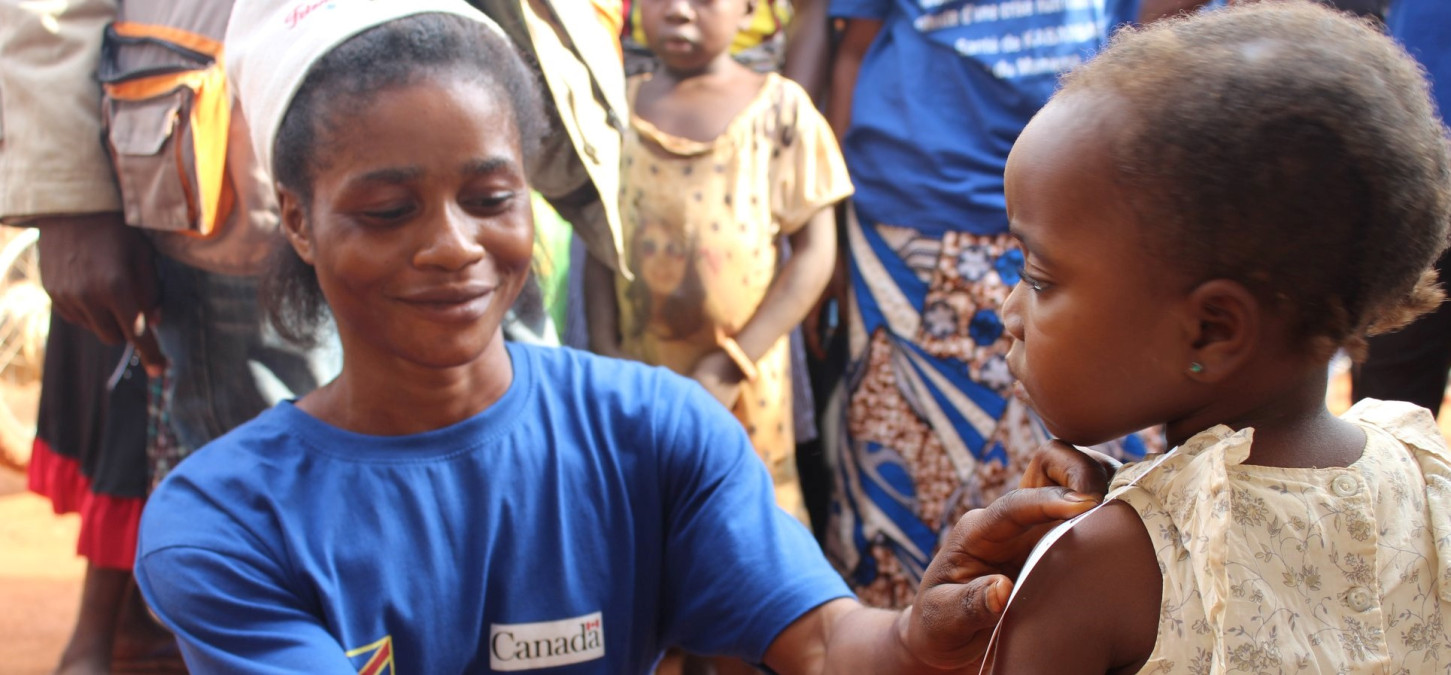Addressing malnutrition in the Democratic Republic of the Congo
Published: Feb 14, 2020 Reading time: 4 minutes Share: Share an articleFatuma Senganda* lives in the Kabambare Health Zone, in the eastern part of the Democratic Republic of the Congo (DRC). Her husband does not have a job and their field is the family’s sole source of income. Recently, this 25-year-old mother of three faced a serious problem: she and her youngest child were both diagnosed with malnutrition. “I was not able to get medical attention for myself or my child because health care is very expensive,” she said.

Unfortunately, these types of stories are not uncommon in the Kabambare Health Zone, where every fifth person is undernourished. The alarming malnutrition rate has several causes. “The region is difficult to access because of the lack of safe roads and paths,” explains Lucie Chlubnova, People in Need’s (PIN) DRC Program Manager. “This makes it challenging to supply medicine and medical equipment to hospitals and other healthcare facilities, which consistently report severe shortages of both.”
Healthcare facilities in remote villages, which are often most severely affected by conflicts between local armed groups, suffer the greatest resource deficiencies. This in turn increases the risk of disease transmission. “Poverty, inadequate access to drinking water, lack of hygiene and poor sanitation habits, inappropriate feeding practices, especially for infants, children and women, and a dearth of agricultural inputs contribute to high rates of malnutrition and undermine the economic development potential of the population,” says Chlubnova.
Free treatment and training
In April 2019, PIN started a project to tackle severe acute malnutrition in the Kabambare region of the Maniema province, with financial support from the Government of Canada provided through Global Affairs Canada. This intervention focuses on health, nutrition, water, hygiene and sanitation activities, and targets children under five as well as pregnant or lactating women from seven health areas of the Kabambare region. As part of that project, PIN provides life-saving medicines, high-nutritional supplements to treat malnutrition, healthcare materials, and other medical equipment. Besides, the nutritional inputs such as therapeutic milk, PlumpyNut and anthropometric material have been donated by the UNICEF DRC to cover the project needs.
The initiative was established in response to the humanitarian crisis that escalated in the DRC in 2018, particularly in the eastern part of the country. According to the United Nations, more than 13 million people in the DRC are currently in need of humanitarian assistance. By the end of 2020, the project will have assisted over 54,000 beneficiaries.
Says Chlubnova: “To date, we have provided basic health care for at least 1,500 malnourished children under the age of five, and 100 malnourished pregnant or lactating women. We also ensure an adequate supply of medicines and nutrition supplements to healthcare facilities and help train healthcare workers.”
Senganda is one of the project’s beneficiaries. “I am very satisfied because the health center welcomed us and treats us free of charge,” she says. “I am already much better and my child will continue to be treated for free with continuous monitoring by the PIN team. I am confident that my daughter will recover soon.”
PIN also trains staff at local healthcare facilities on how to ensure good nutrition and prevent malnutrition, and on the importance of breastfeeding for the healthy development of children. In addition, PIN provides training to improve basic personal hygiene habits.
Local healthcare volunteers receive similar trainings to help healthcare centers as well as communities, especially mothers of children under 5 years, identify cases of malnutrition and other diseases in remote villages. These volunteers are then able to share their newly acquired skills not only with their peers but also in their communities. In this way, PIN-trained volunteers are actively helping to prevent additional cases of acute malnutrition in remote rural areas, one of the most serious problems in the DRC.
Active involvement of men
PIN recognizes the importance of involving all family members in its efforts to combat malnutrition. That’s why PIN also focuses on training of mothers – in the presence of their husbands – on how to identify, prevent, and treat malnutrition and diseases in their children.
“Thanks to the active involvement of men in this process, PIN has observed gradual societal changes,” says Chlubnova. “For instance, men have begun to realize what is and is not safe for their wives during pregnancy. They have also learned about what should be avoided during pregnancy and what a quality diet should include.”
* Name changed for security reasons









